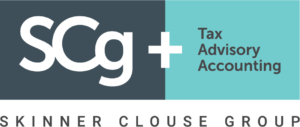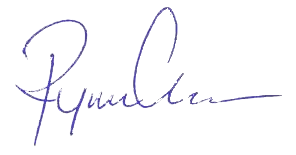Recently Enacted Personal Tax and Financial Benefits in Connection with the COVID-19 Crisis
April 8, 2020 | Stephanie Sandro

Dear Client:
We hope that you are keeping yourself, your loved ones, and your community safe from COVID-19. You may be wondering about some of the recent tax changes meant to help everyone coping with the economic fallout. Here is a summary of IRS action taken and federal tax legislation already enacted to ease tax compliance burdens and economic pain caused by COVID-19. We will be sending a second letter covering provisions specific to businesses.
Income Tax Filing and payment deadlines deferred. After briefly offering more limited relief, the IRS almost immediately pivoted to a policy that provides the following to all taxpayers—meaning all individuals, trusts, estates, partnerships, associations, companies or corporations regardless of whether or how much they are affected by COVID-19:
- For a taxpayer with a Federal income tax return or a Federal income tax payment due on April 15, 2020, the due date for filing and paying is automatically postponed to July 15, 2020, regardless of the size of the payment owed.
- The taxpayer is not required to file Form 4868 (automatic extensions for individuals) or Form 7004 (certain other automatic extensions) to get the extension. Form 4868 will need to be filed before July 15, 2020, if the Form 1040 will be filed after that date.
- The relief is for (A) Federal income tax payments (including tax payments on self-employment income) and Federal income tax returns due on April 15, 2020 for the person’s 2019 tax year, and (B) Federal estimated income tax payments (including tax payments on self-employment income) due on April 15, 2020 for the person’s 2020 tax year. This relief does not apply to estimated income tax payments due June 15, 2020.
- As a result of the return filing and tax payment postponement from April 15, 2020, to July 15, 2020, that period is disregarded in the calculation of any interest, penalty, or addition to tax for failure to file the postponed income tax returns or pay the postponed income taxes. Interest, penalties and additions to tax will begin to accrue again on July 16, 2020.
Recovery rebates for individuals. To help individuals stay afloat during this time of economic uncertainty, the government will send payments of up to $1,200 to eligible taxpayers and $2,400 for married couples filing joints returns. An additional $500 payment will be sent to taxpayers for each qualifying child dependent under age 17 (using the qualification rules under the Child Tax Credit).
Rebates are gradually phased out, at a rate of 5% of the individual’s adjusted gross income over $75,000 (singles or marrieds filing separately), $122,500 (head of household), and $150,000 (joint). There is no income floor or ‘‘phase-in’’—all recipients who are under the phase-out threshold will receive the same amounts. Tax filers must have provided, on the relevant tax returns or other documents (see below), Social Security Numbers (SSNs) for each family member for whom a rebate is claimed. The rebates are not available to nonresident aliens, estates and trusts, or to individuals who themselves could be claimed as dependents.
The rebates will be paid out in the form of checks or direct deposits. Most individuals need take no action to receive a rebate. IRS will compute the rebate based on a taxpayer’s tax year 2019 return (or tax year 2018, if no 2019 return has yet been filed). If no 2018 return has been filed, IRS will use information for 2019 provided in Form SSA-1099, Social Security Benefit Statement, or Form RRB-1099, Social Security Equivalent Benefit Statement. A simplified tax return filing process will be provided by the IRS to allow those with no filing requirements to file a 2019 return in order to be on record as eligible for a stimulus check.
Rebates are payable whether or not tax is owed. Thus, individuals who had little or no income, such as those who filed returns simply to claim the refundable earned income credit or child tax credit, qualify for a rebate.
Waiver of 10% early distribution penalty. The additional 10% tax on early distributions from IRAs and defined contribution plans (such as 401(k) plans) is waived for distributions made between January 1 and December 31, 2020 by a person who (or whose family) is infected with the Coronavirus or who is economically harmed by the Coronavirus (a qualified individual). Penalty-free distributions are limited to $100,000, and may, subject to guidelines, be re-contributed to the plan or IRA. Income arising from the distributions is spread out over three years unless the employee opt out of this deferral. Employers may amend defined contribution plans to provide for these distributions. Additionally, defined contribution plans are permitted additional flexibility in the amount and repayment terms of loans to employees who are qualified individuals.
Waiver of required distribution rules. Required minimum distributions that otherwise would have to be made in 2020 from defined contribution plans (such as 401(k) plans) and IRAs are waived. This includes distributions that would have been required by April 1, 2020, due to the account owner’s having turned age 70 1/2 in 2019.
Charitable deduction liberalizations. The CARES Act makes four significant liberalizations to the rules governing charitable deductions:
(1) Individuals will be able to claim a $300 above-the-line deduction for cash contributions made, generally, to public charities in 2020. This rule effectively allows a limited charitable deduction to taxpayers claiming the standard deduction.
(2) The limitation on charitable deductions for individuals that is generally 60% of modified adjusted gross income (the contribution base) doesn’t apply to cash contributions made, generally, to public charities in 2020 (qualifying contributions). Instead, an individual’s qualifying contributions, reduced by other contributions, can be as much as 100% of the contribution base. No connection between the contributions and COVID-19 activities is required.
(3) Similarly, the limitation on charitable deductions for corporations that is generally 10% of (modified) taxable income doesn’t apply to qualifying contributions made in 2020. Instead, a corporation’s qualifying contributions, reduced by other contributions, can be as much as 25% of (modified) taxable income. No connection between the contributions and COVID-19 activities is required.
(4) For contributions of food inventory made in 2020, the deduction limitation increases from 15% to 25% of taxable income for C corporations and, for other taxpayers, from 15% to 25% of the net aggregate income from all businesses from which the contributions were made.
Exclusion for employer payments of student loans. An employee currently may exclude $5,250 from income for benefits from an employer-sponsored educational assistance program. The CARES Act expands the definition of expenses qualifying for the exclusion to include employer payments of student loan debt made before January 1, 2021.
Break for remote care services provided by high deductible health plans. For plan years beginning before 2021, the CARES Act allows high deductible health plans to pay for expenses for tele-health and other remote services without regard to the deductible amount for the plan.
Break for nonprescription medical products. For amounts paid after December 31, 2019, the CARES Act allows amounts paid from Health Savings Accounts and Archer Medical Savings Accounts to be treated as paid for medical care even if they aren’t paid under a prescription. And, amounts paid for menstrual care products are treated as amounts paid for medical care. For reimbursements after December 31, 2019, the same rules apply to Flexible Spending Arrangements and Health Reimbursement Arrangements.
Skinner Clouse Group recognizes this is a stressful and unprecedented time, and we assure you that we continue to serve as your trusted advisors. We have the technology in place to continue providing exemplary service and we are committed to ensuring your experience through this situation is as seamless as possible. Please contact us with any questions you may have about this information.
Take care of yourselves and each other.
Skinner Clouse Group PLLC


Todd W. Skinner, CPA Ryan Clouse, CPA
